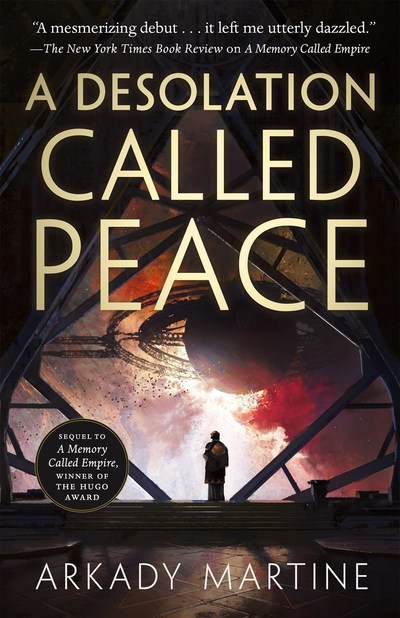Twenty-five years ago, in the land of Vos, a group of mighty warriors fought and defeated a great evil. Celebrated and rewarded for their bravery, the group became legends in their own lifetimes and retired in a time of newfound peace. In Sarah Beth Durst’s The Bone Maker, it’s the demons we battle after triumphing over our greatest hardships that are the most challenging to defeat. How much pain and how many sacrifices does it cost to win? And could you summon that courage again, if you were called upon?
Kreya of Vos lost her husband, Jentt, when he sacrificed himself to save the world from the renegade bone maker Elkor. But Kreya is a bone maker too, able to use animal bones to animate inanimate objects with sentience and locomotion. Consumed by grief and hidden away deep in the forest with Jentt’s corpse, she pores over forbidden rituals that temporarily bring Jentt back to life. When she risks everything to harvest the bones of soldiers defeated at the final battle with Elkor, she discovers that the world may not be safe after all—the ancient evil Kreya and Jentt thought they defeated 25 years ago may have returned.
Readers will be hooked by an early scene that depicts one of Jentt’s many returns from death. Kreya awakens him, but she knows her spell is only strong enough to keep him alive for a day. It’s incredibly sad and instantly relatable. Regret is a significant theme for all of the book’s characters, and Kreya’s longing is a pitch-perfect way to introduce it. Other characters have regrets as well, but a wife who wants her husband back hits especially hard. Durst displays a mastery of emotional resonance throughout the book, bringing each character’s scars to the surface even in moments of levity. You never really forget the toll the past has taken on each person.
ALSO IN BOOKPAGE: Sarah Beth Durst on her love of backstories, the importance of humor and the inspiration for bone magic.
The Bone Maker follows story beats common to many fantasy novels. The second act has a certain “getting the gang back together” spirit to it, returning a group of semibroken people to one another’s company. Two things keep the story feeling fresh while Durst sets her chess pieces upon the board. The first is dialogue; The Bone Maker features lovely banter between people who know each other well, and they alternate insults, jokes and witty comebacks with raw conversations about pain and regret. Some of the best moments involve characters simply talking to one another and reflecting on feelings they have held inside.
The second element that sets The Bone Maker apart is its magic system. Each kind of bone magic is distinct, simple to understand and integral to the story. Durst constantly reveals new and creative ways to use the slightly creepy shamanistic act of carving symbols in bones in order to solve problems—to read the future, for example, or to endow someone with superhuman strength. While some of the central rules are set up early and repeated, the reader always feels that a new way to use magic is right around the corner.
When I read Durst’s Race the Sands last year, I loved the way she zeroed in on her characters as they searched for ways to reconcile with pain and loss. That same empathy is present in The Bone Maker, refracted across a new group of fantastic characters. There’s power in these bones.





























